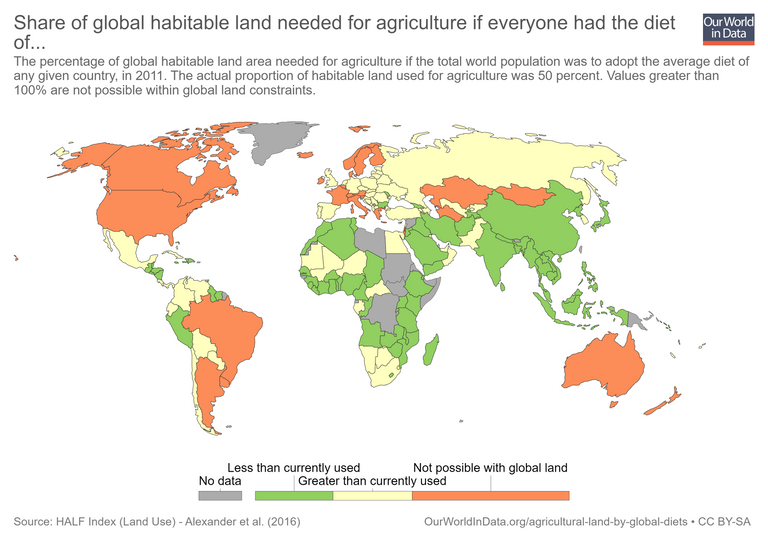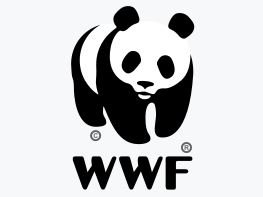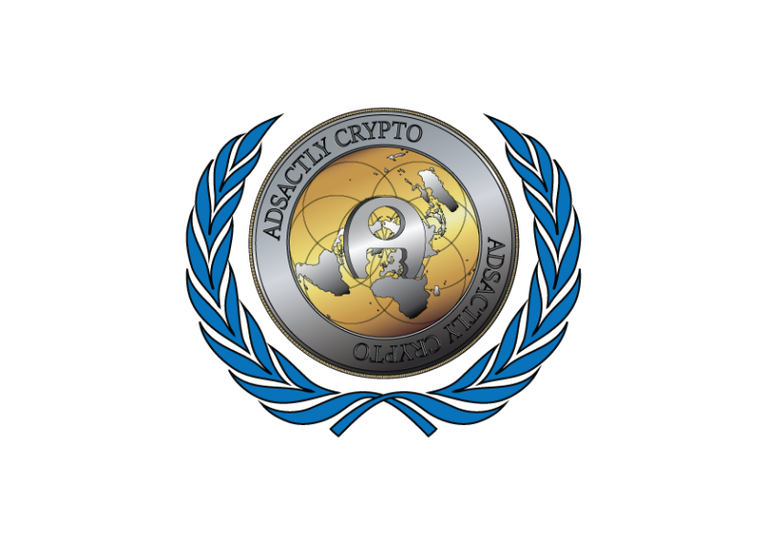*** Now with 50% more doom ***

I originally published some of this post on steemit but now it has been updated as time has moved by so now it features 50% more doom.
Firstly, a little bug bear of mine. I think that we need to discuss what the difference is between Vegan and plant based. You can be plant based but not vegan but you cant be vegan and not be plant based. Clear? I thought not, there are plenty of people who believe that they are following a "Vegan diet" and this by default makes them vegan, this is sadly untrue. Here are a few examples of each and hopefully this will explain the difference.

Person 1, lets call him Bob, who wants to be called person 1 anyway? and person 2, lets call her Lucy.
First lets look at Bob:
- Bob eats a 100% plant based diet, Bob just went to the shop and purchased a brand new leather jacket, lucky Bob. Bob is not Vegan, Bob is plant based.
- Bob eats a 100% plant based diet, Bob raises and sells animals for profit, after all he isn't doing the killing. Bob is not vegan, Bob is plant based.
- Bob, eats a 100% plant based diet, Bob regularly attends social events that use animals as entertainment, ha ha, look at the tiger dance on the ball, tigers are smart, I love tigers. Bob is not Vegan, Bob is plant based.
Now lets look at Lucy
- Lucy eats a 100% plant based diet, Lucy loves a make up brand but that brand test on animals, Lucy does not continue to purchase or support that brand. Good for you Lucy. Lucy is Vegan.
- Lucy eats a 100% plant based diet, Lucy avoids attending social events where animals are used for entertainment like horse or greyhound racing. Lucy has educated herself in what happens to animals in these industries. Lucy is Vegan.
- Lucy eats a 100% plant based diet, Lucy was involved in a car crash, the medicines and anaesthetic that was used on Lucy were tested on animals. Without them Lucy would have died. Lucy is Vegan.
Can you tell the difference between Bob and Lucy? I hope I have made it as clear as possible. Bob only eats plants but has no consideration for the animal world around him. Lucy cares deeply about animals, their health and where possible and practicable avoids anything that will cause them to be used in any way. This is a key difference in people who only eat plants I.E. Plant based and Vegan. The difference is an ethical one.

Definition of veganism:

Ok, I got it, so why Veganism (or at least plant based) is the future?
The Western diet is killing us.
"The western diet is rich in red meat, dairy products, processed and artificially sweetened foods, and salt, with minimal intake of fruits, vegetables, fish, legumes, and whole grains."SRC


With a population of 65.64 million the figures for the UK can be extrapolated across other nations too. These would be average numbers for digestive tract cancers caused by red and processed meats.
- Germany's population 84 million, would have 11550 fewer cancer cases.
- Spain's population 46.5 million, would have 6325 fewer cancer cases.
- France's population 66.9 million, would have 9198 fewer cancer cases.
- USA population 325.7 million, would have 44783 fewer cancer cases.
- European population of 741.4 would have 101942 fewer cancer cases.
If we look at Europe as a whole
Between the US and Europe alone we are looking at almost 150,000 preventable cancer cases. That is just one type of cancer! When we look at coronary disease and stroke the figures get even worse. We have been sold a lie for generations. Thankfully the world is waking up to the damaging nature of animal based foods and indeed the inverse healing nature of plant based foods. The solution to so many health issues we see in our modern world is to simply stop eating animals and their products I.E. Milk and milk derived products. In fact, connections have been established by the British medical journal between the consumption of red meat to an increase in death rates from nine different diseases: cancer, type 2 diabetes, stroke, Alzheimer’s, infections and diseases of the heart, liver, kidneys and respiratory tract. SRC
So what if these people die? the earth is overpopulated anyway! Well it is over populated but not by who you think.... Actually the earth could support a whole lot more! The human population could increase to simply mind boggling numbers and be able to sustain itself with essentially small holdings. In this post over on Steemit by @rieki they discuss this exact thing. A very worthwhile read. This also leads us on to our next topic

Current agriculture models are not sustainable.
Below is a graph, who doesn't love a graph? This graph indicates whole lifecycle total of greenhouse gas emissions for common protein foods and vegetables, expressed as kilograms (kg) of carbon dioxide equivalents (CO2e) per kg of consumed product.

Did you know that animal agriculture causes more greenhouse gas emissions than that of all transportation? Lamb contributes 39.3 kg of carbon per 1 kilo of meat consumed[1], Beef contributes 39.3 kg carbon per 1 kilo of meat consumed[2] SRC 1 & 2. Conservative estimates put animal agriculture at 14 - 18% where as transportation is only 13.5%. That is just Co2, we also have to factor in Methane. Methane is at least 20 times more potent as a Co2 in terms of greenhouse gas. Methane accounted for about 16% of global greenhouse gas emissions in 2015, according to the IPCC (UN’s Intergovernmental Panel for Climate Change)[3]SRC 3. Livestock has the world’s largest land footprint and is growing fast, with close to 80% of the planet’s agricultural land now used for grazing and animal feed production, even though meat delivers just 18% of our calories. When we look at the huge strides we take towards reducing our carbon footprint in the transportation sector we would be foolish at best to ignore the footprint or should I say hoof print of our food. But that is only some of the story....

Where are we going to keep all these animals?
Land usage for meat and dairy production is hugely inefficient. "Livestock is the world’s largest user of land resources, with pasture and land dedicated to the production of feed representing almost 80% of the total agricultural land. The sector uses 3.4 billion hectares for grazing and one-third of global arable land to grow feed crops, accounting for more than 40% of world cereal production. 26% of the Earth’s ice-free terrestrial surface is used for grazing."SRC. That was the 2014 numbers, or around 318.8 million tonnes of meat. The FAO (Food and Agriculture Organization of the United Nations) Estimates puts meat production for 2050 at 455 million tonnes!
Can you see where this is headed? We are going to raise and slaughter Billions more animals every year by 2050. The knock on effect of this is catastrophic to our environment. Is that cheese burger really worth not having a planet to live on?

If we look at the graph above we can see that in 2011 50% of habitable land was used for agriculture, 77% of this was used for animal agriculture. Yet only 17% of the total calorific food supply comes from meat and dairy. This is a totally unsustainable model of generating a food source for a global population. If we continue down this route we will have no habitable land left for people with the entire habitable land mass taken up by "food" animals. Not forgetting that every increase in food animals also increased their greenhouse gas emission. If we move to at least a plant based model we will not only reduce our need for land which simply is not available but we could also mitigate the effects of animal agriculture on our climate. It is a win win situation.

The graphic above shows the land required for diet type by country. I have had to copy the image but you can visit the interactive map here The red countries indicate the land required if the world ate as that country. If we look at the US we would need 137.65% of the entire habitable land just to raise "food" animals. If we look at New Zealand we would need 191.2% almost double of the available land on the earth just to raise "food" animals. But if we look at a more plant based country I.E. India we would only need to use 22.2 precent% Even my home country of Ireland fails, it would require 105.8%. This is not to mention the huge live export trade that Ireland has.

So cant we just eat fish instead?
With industrialized fishing decimating dwindling fish stocks we are set to have more plastics in our oceans by 2050 than fish. This report predicts that, on the current track, oceans will contain more plastic than fish by 2050. Recently a team of scientists at NUI Galway, Ireland, found 73% of deep water fish had ingested plastic particles. The full study can be found here. This is really bad news for the fish that are left in our oceans. The team examined the stomach contents of the 233 deep sea fish they had gathered, which ranged in size from 3.5 to 59 centimeters. One small Lanternfish, just 4.5 centimeters long, had 13 microplastics in its stomach. These smaller fish are a food source for larger fish, who eats the larger fish? You guessed it people do. We are in the process of poisoning the oceans at an alarming rate. Did you know that land animal agriculture is also responsible for oceanic dead zones?
Dead zone is a more common term for hypoxia, which refers to a reduced level of oxygen in the water. Aquatic life that is mobile can move but aquatic life that is not, suffocates. The video below is from NOAA (National Oceanic and Atmospheric Administration). It shows how dead zones are created and what effects that these zones can have on all life, not just aquatic life.

Now who is ready for 50% more doom?
On the 8th October 2018 the IPCC (International panel on climate change) released this statement. The news has not become better in the 8 months since I posted the original article on steemit. In-fact as we are continuing to expand meat and dairy production we are accelerating climate change.
So who are the IPCC and why should we listen to what they have to say?
The Intergovernmental Panel on Climate Change (IPCC) is the UN body for assessing the science related to climate change. It was established by the United Nations Environment Programme (UN Environment) and the World Meteorological Organization (WMO) in 1988 to provide policymakers with regular scientific assessments concerning climate change, its implications and potential future risks, as well as to put forward adaptation and mitigation strategies. It has 195 member states.
IPCC assessments provide governments, at all levels, with scientific information that they can use to develop climate policies. IPCC assessments are a key input into the international negotiations to tackle climate change. IPCC reports are drafted and reviewed in several stages, thus guaranteeing objectivity and transparency.
The IPCC assesses the thousands of scientific papers published each year to tell policymakers what we know and don't know about the risks related to climate change. The IPCC identifies where there is agreement in the scientific community, where there are differences of opinion, and where further research is needed. It does not conduct its own research.
To produce its reports, the IPCC mobilizes hundreds of scientists. These scientists and officials are drawn from diverse backgrounds. Only a dozen permanent staff work in the IPCC's Secretariat.
The IPCC has three working groups: Working Group I, dealing with the physical science basis of climate change; Working Group II, dealing with impacts, adaptation and vulnerability; and Working Group III, dealing with the mitigation of climate change. It also has a Task Force on National Greenhouse Gas Inventories that develops methodologies for measuring emissions and removals.
IPCC Assessment Reports consist of contributions from each of the three working groups and a Synthesis Report. Special Reports undertake an assessment of cross-disciplinary issues that span more than one working group and are shorter and more focused than the main assessments. " SRC P 3 & 4
In a further statement by the IPCC on the 10th October IPCC chair Lee said "Limiting global warming to 1.5°C would require rapid, far-reaching and unprecedented changes in all aspects of society. With clear benefits to people and natural ecosystems, limiting global warming to 1.5°C compared to 2°C could go hand in hand with ensuring a more sustainable and equitable society," SRC
We need to look at all aspects of our lifestyles if we are going to achieve the reduction in % of global warming in the next few decades. These changes need to come quick and must bring massive changes in emission if they are to be successful. But what has actually occurred?
Well, for one thing, in my home country of Ireland we have had a deliberate miss representation of GHG emission by farming groups who have stated that they have managed to "decouple" GHG emissions from dairy and beef herds!! Yes, you read that correctly, Somehow, instead of looking at the facts that are presented to them and actually making a change they decided to lie about the numbers SRC and SRC. They have been caught red handed, but will these bodies receive any form of punishment? My guess is probably not. These groups are extremely powerful and hold the keys to many many votes for the politicians whom support them. The naivety and short sightedness of these people boils my blood. They are only in it for a quick buck and to ensure that their industry, an industry that is responsible for massive GHG emission, animal rights violations and cruelty on an industrial scale gets to continue unabated (please excuse my inner animal rights advocate there folks, lets keep this strictly scientific).

How is human activity and choices effecting other life on earth?

In this report by WWF (no not the wrestling guys, if you are of a certain vintage you will get that) we can see a staggering decline in populations of mammals, birds, fish, reptiles, and amphibians. A drop of 60% in just 40 years, folks, this is yet another wake-up call. How many will you need before you look at your lifestyle? The biggest drivers of current biodiversity loss are over-exploitation and agriculture. Massive swaths pf prime rain forest are being destroyed to grow crops to feed not humans but animals that humans then go on to eat. I have covered this in a previous section.
“This report sounds a warning shot across our bow. Natural systems essential to our survival – forests, oceans, and rivers – remain in decline. Wildlife around the world continue to dwindle,” said Carter Roberts, President and CEO of WWF-US. “It reminds us we need to change course. It’s time to balance our consumption with the needs of nature, and to protect the only planet that is our home.” SRC

So that's all for now folks, hit that follow button for more recipes and a glimpse inside the mind of a moonunit.
Oh one last thing, I have set up my witness node over on whaleshares. This node ads to the numbers currently supporting the whaleshares blockchain. Without witness nodes there would be no whaleshares to post on or make money off. Witnesses count on your votes so if you could spare a vote for me I would really appreciate it. You can vote for my witness here https://whaleshares.io/~witnesses I am in the list but you can also go to the bottom of the page and type in moonunit and click "share". You can read my witness post HERE!


LIKE WHAT YOU SEE?
Hit that....Follow button!


Wow! Great, and detailed article. Thank you.
I've recently committed (in my mind, at least) to become vegan, but haven't actually made the leap yet.
I decided to research and prepare myself first, not so much for reasons to become vegan (already decided), but how best to go about it. I'm in my 40's (lifetime of meat eating habits to overcome) and have a wife, who'll never become vegan, and a five-year-old daughter, who I don't want to force anything on.
So, I'm finding best practices which will work for me, in my living environment - because I'm assuming this will be a hard switch to make when my family are continuing to eat meat.
Anyway - great information, all supporting my decision to become vegan (not plant-based)!!
Hey Minimalish, that is really great to hear. It doesn't have to be a big thing. The more we make of it in our minds the harder it is to overcome. I went vegan at 36, I was a big time corpse muncher too. believe me when I say that. My whole family is Vegan, wife and 3 kids. As a child every decision is forced on you so I wouldn't get too caught up on that side of things. We just explained where meat, eggs, dairy etc comes from and offered a different choice. The kids haven't looked back since. They are all super healthy, really active and full of energy.
As for the missus, never say never. You just dont know what is around the next corner!
Thanks doe checking the post out too. I will be working on part 2 for the coming weeks. As you will appreciate making sure I correctly reference my sources is key in a post like this. I prefer to stick to facts rather than emotion in this discussion. Although all I want to do is destroy the machine that is animal ag.